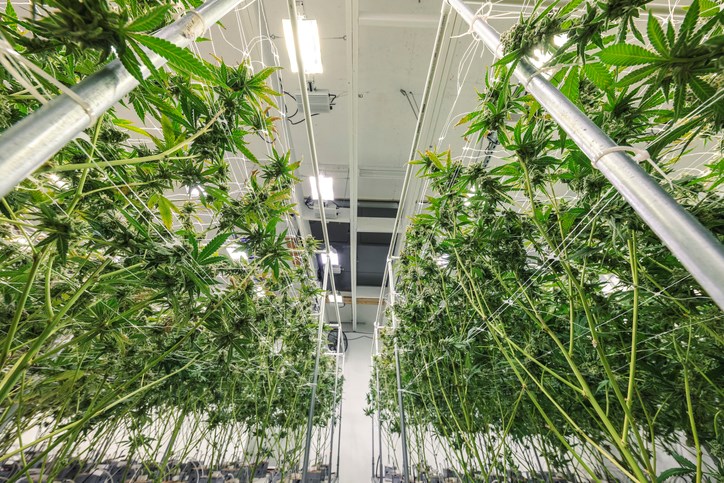A man found in a Tri-City basement among hundreds of marijuana plants has been granted a new trial after the original judge was found to have misapprehended and misused expert evidence.
The case stems from the fall of 2015, when neighbour Kevin Cahoon — a private investigator — first noticed three men visiting a property on a regular basis. By the the following spring, Cahoon could smell marijuana coming from the house, so he started to photograph people coming and going, including capturing images of Huobin Liu loading garbage bags into a van and driving away.
Cahoon tipped off Coquitlam RCMP, which started its own surveillance of the residence. On June 8, 2016, officers executed a search warrant, finding “the entire house was taken over by the grow operation…” reads the ruling.
RCMP found 712 marijuana plants in the house, as well as a kitchen empty of food or cookware, garbage bags with used soil and scraps of pot plants, and four Health Canada “Personal-Use Production Licences — Dried Marihuana for Medical Purposes.” But the licences didn’t bear Liu or any of the other men's names, were for other production sites and had expired in 2013 or 2014.
RCMP officer Const. Citrus Wong, who was among the officers who participated in Liu’s arrest, translated to Cantonese that he was being arrested for possession of marijuana for the purposes of trafficking and that he had the right to a lawyer. The officer did not, however, state that he had the right to remain silent, nor that he was also being charged with the production of marijuana.
Const. Wong testified he was not “100% sure of his translation of technical Charter terms,” and when released from handcuffs, Liu started talking.
At trial, Liu said he was a trained chef and that he’d initially been brought to the property to cook for one of the other men. But when he saw the plants, he asked if the grow operation was legal. He testified that he was shown the licenses and because of his limited English abilities, trusted his employer.
In the days leading up to the bust, Liu told the court he had been paid about $3,000 a month to tend to the plants while his boss was away.
The trial judge found Const. Wong provided only “half of the usual caution on the right to silence” but that “There was no evidence of police trickery, threats, promises, or oppression.”
In the end, Liu was found to be directly engaged in the grow operation prior to the arrest.
But in their ruling granting Liu a new trial, the appeal judges found that the trial judge was wrong to find Liu’s statement as voluntary and that among other errors, the judge misstated expert evidence.
During cross-examination of RCMP Staff Sgt. Patrick Murphy — an expert witness on the production, use, distribution, price and packaging of cannabis — the officer said it was possible that not everyone with access to a grow operation is there as a participant.
Some might “have a buddy over for a beer” if they were a vetted, trusted confidant, accepted Staff Sgt. Murphy, agreeing that a “trusted confidant does not mean a criminal confederate...”
But in the trial judge’s decision, the justice failed to cite Staff Sgt. Murphy’s full testimony, saying that “only trusted individuals engaged as part of the grow up would be permitted regular or any attendance at the grow operation.”
The mistake, wrote the appeals judges, “completely undermined Mr. Liu’s evidence and critically influenced the trial judge’s rejection of it.”



